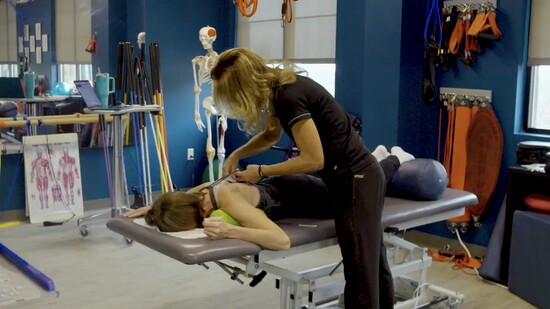Dr. Kunj Amin is the newest physician at Austin's Center for Healing and Regenerative Medicine. He brings advanced expertise in interventional spine and musculoskeletal medicine along with a deeply personal philosophy shaped by experience.
“I initially went into medicine as actually a pivot,” he said. A family connection reinforced his decision: “My dad was disabled when I was very young… the ability to optimize someone’s function who otherwise has been permanently in deficit, to bring them back to something that’s at par or above, was something that was interesting to me.”
His training took him from medical school at Rosalind Franklin University to residency at the University of Pennsylvania and fellowship at Texas Spine and Scoliosis, where he developed a passion for non-operative care.
After an ankle injury in college, Amin underwent surgery he now believes could have been avoided.
“That’s a lot of the value that I bring for people currently, and hope to continue to do — help people find the right treatment at the right time… and if surgery’s not where they need to be, then how do we get you better with something less invasive?”
His research also reflects that commitment. Recent papers in Interventional Pain Medicine and Spine examined the safety of epidural injections in patients with spinal stenosis and osteoporosis.
“I’m really happy with that work and I’m really proud of that because I think that it informs my conversations with patients and informs how I recommend things for people,” Amin said.
At CHARM, he looks forward to blending conventional techniques with regenerative therapies.
“Sometimes people who are in the industry think of it as an either-or and I definitely think of it as a this and,” he said. “In some cases, a steroid injection is the best option. In some cases, an ablation is the best option. And in some cases, it might be a regenerative therapy. You just have to match the right tool to the right job.”
Part of what excites him most about CHARM is the opportunity to treat the whole body.
“I think having the freedom to move about the body and address people’s different concerns was definitely part of the rationale. The regenerative therapies are one of the really exciting things in our field, and offer a holistic, natural treatment approach for people.”
His vision for CHARM is grounded in patient education and empathy.
“My vision for patient-centered care is to be an educator and someone who can walk alongside patients in their journey,” he said. “I want to be the best ally in that journey, help you answer the questions of ‘What do I need to do to take care of my body and what are non-invasive ways I can help myself?’”
Amin has a particular passion for women’s musculoskeletal health, citing disproportionate rates of conditions such as osteoarthritis and SI joint pain, as well as musculoskeletal issues associated with perimenopause and menopause.
“Those are often the people who come in most frustrated,” he said. “They come in having had pain for multiple years and seeing multiple doctors, and they’re like, ‘People tell me it’s all in my head.’”
As he settles into his role, Amin emphasizes both humility and optimism.
“I think it’s going to be an excellent fit,” expressing gratitude for the opportunity, he said. “I have a lot to bring to them, and I’m really excited for all the things that they can teach me as well.”
